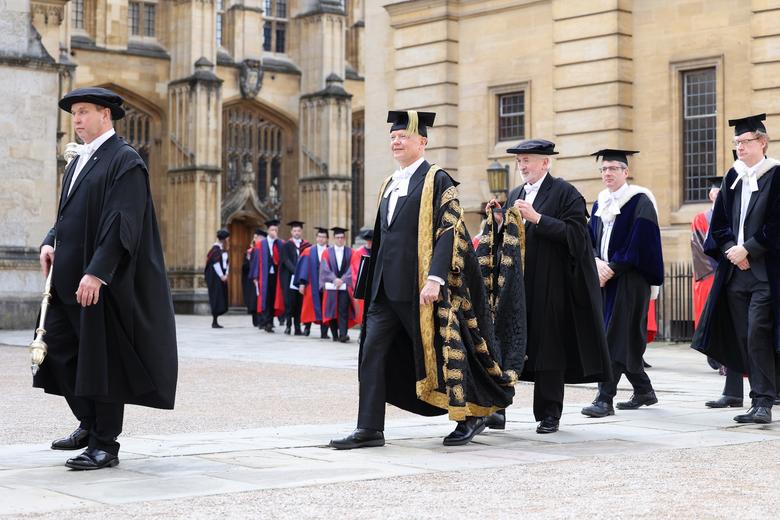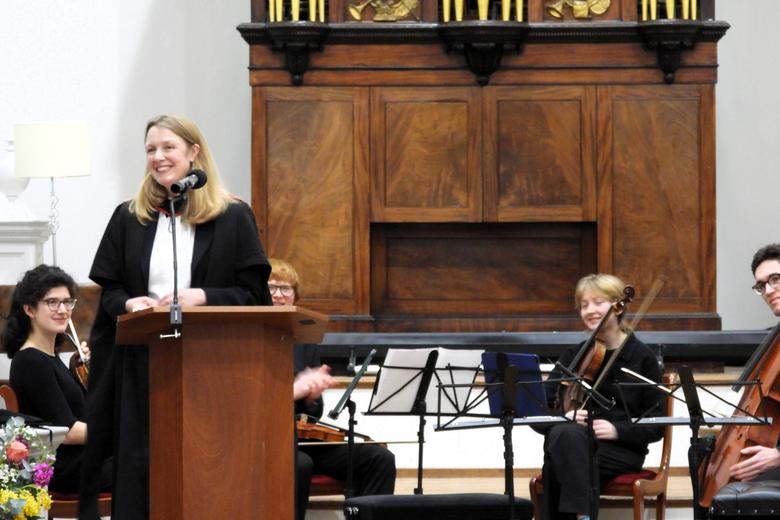ALUMNI STORIES: 'AN ACADEMIC CAREER IS REALLY HARD...KEEP HOLD OF THAT PASSION!'

ALUMNI STORIES: 'AN ACADEMIC CAREER IS REALLY HARD... REMEMBER TO KEEP HOLD OF THAT PASSION!'
Hannah Gould (St Antony's, 2014) talks about having a continued connection with Oxford by volunteering with the Oxford University Society in Victoria (OUSV).
Read an extract from the interview below.
Published: 25 June 2024
Share this article
https://www.youtube.com/embed/_5EK-pE8-QE?si=MssQu3SSCnGDDnqv;
As President of the Oxford University Society in Victoria (OUSV), can you tell us more about the community and networking events that the society holds?
I joined the Oxford University Society in Victoria and I'm now the President. We try to recreate the academic community of sharing intellectual ideas. We have regular lunches with guest speakers, often Oxford alumni visiting Melbourne, with diverse topics from science, arts, music and humanities.
Oxford will always be part of who we are and how we move through the world, so it's fantastic to be part of OUSV.
How do you think being involved in the OUSV helps its members?
We provide a space for new freshers who are heading off to Oxford, so one of our most successful events is the farewell that we have in Victoria. We get new students from all across Australia coming down for this event with alumni sharing their tips and tricks of everything related to Oxford, including where to get a good coffee, which is very important for Melburnians!
Alumni enjoy having that continued connection with Oxford University and feel they haven't left it behind. It will always be part of who we are and how we move through the world, so it's been a fantastic thing to be part of.
You studied Visual, Material and Museum Anthropology (VMMA) at Oxford. What was the inspiration behind delving into this field of study?
The VMMA (Vision Material Museum Anthropology) is a wonderful course. I picked it because I was really interested in material culture and the role objects play, particularly in the museum, but also more broadly in life. This course is unique around the world, there's nowhere else that focuses on that kind of human material interface. Part of the course is taught at the Pitt Rivers Museum which is just an amazing place to be able to take classes and learn from extraordinary professors who work there.
What were the key milestones in your career since leaving Oxford?
VMMA totally changed the trajectory of my career, and of my life. I'm so glad that I decided to take the plunge to move to Oxford from Australia to take it.
After my Master's degree, I started the field work that eventually led to my new book, ‘When Death Falls Apart’. I first interacted with Japanese Buddhist material culture weirdly enough in Oxford. Just around the corner there's a group of people who have these objects and are Japanese Buddhists.
Could you give us an overview of your new book, ‘When Death Falls Apart’. What are the main topics you explore?
I study death, dying, religion and all those cool things about why death rituals and traditions persist between generations, and why we keep performing them.
‘When Death Falls Apart’ is broadly based on research in Japan and looking at what happens when people decide they no longer want to perform traditional Buddhist rituals around death and dying. I find it really fascinating discovering how things become meaningful to humans and finding out answers to questions like, 'Why do so many cultures and religions light candles to honour the dead?' 'Why is that?' 'Where do the dead go? and 'How do we contact gods or spirits?'.
What do you hope readers will take away from it?
I think the most important thing about this book is asking people to have an appreciation of the people who work in and around death. I want people to get an appreciation of just how important the work they do is, and how much they care. They care not just about their commercial bottom line, but actually care about families and about looking after the dead. This book is based on working with and working alongside death care workers in Japan.
Could you share any memorable moments from your fieldwork that had a significant impact on your field of study?
I opened the book with an interment ceremony. I was at a graveyard in Japan and it's one of those moments where you look around and you go, 'How did I get here?'.
We were interring somebody's ashes and all of a sudden, a big gust of wind came through and I was stood there covered in ash in the middle of this Japanese graveyard with this family, with this Buddhist priest. It was kind of meaningful but it was also kind of funny because everyone just laughed. There was something funny but also sad and poignant about that moment.
I think for most people who have scattered people's ashes, this does happen and underlies the absurdity, but also the tragedy of what it is to care for the dead and to remember people.
How has your time at Oxford inspired your career?
I don't think I would be in this career without having come to Oxford. Before I accepted my Master's Degree I almost became four or five other things, I was going to be a lawyer, I was going to do medicine, and in some ways the passion that people at Oxford showed for the things I was interested in, kind of convinced me that this was the path I should go down and that this is a path that I could contribute to.
Do you have any advice or tips for alumni/recent graduates who are interested in following a similar academic path?
An academic career is really hard and I think you have to appreciate that it's a lot of trying to grapple with big ideas and presenting those in a way that makes sense, not just to other academics, but also to the public.
An academic career can be very competitive and stressful, and a lot of it is about grant applications and rejections. You have to keep a hold of that passion about why this thing matters to you even if it doesn't matter to anyone else. If you can keep hold of that passion throughout it all, then I think you'll be successful no matter what that external measure of success is, because you've kept true to what's important to you.
What advice would you offer to freshers who are just starting their journey at the University?
I would suggest to incoming students, embrace everything that is outside of your course. Sign up to as much as possible to find a family in all these different little areas.
It's very easy to become overwhelmed when you come to Oxford and to focus almost too much on your studies. Whilst your studies, classes and readings are important, Oxford is so much more. It's about the community, it's about the conversations you have with people over lunch and dinner, but it's also about joining in clubs and societies. It's about the opportunities around sport and social clubs.
What do you miss about Oxford?
Pubs! I really miss pubs, we don't really have we have pubs in Australia, or they're not as good. I was just sitting at the college pub, where I used to come every week, I was sitting with a pint and listening to all the students in their little groups talk about their readings and talk about Mayday and Oxford life and I think that was like the most gratifying part of my whole experience.
The classes are great, the teaching is great but sitting in a pub with your mates and talking about ideas and Oxford life was the best part of it.
Join the University of Oxford Society in Victoria and find out about their volunteering opportunities.
Hannah Gould's book, 'When Death Falls Apart Making and Unmaking the Necromaterial Traditions of Contemporary Japan' is available now.















